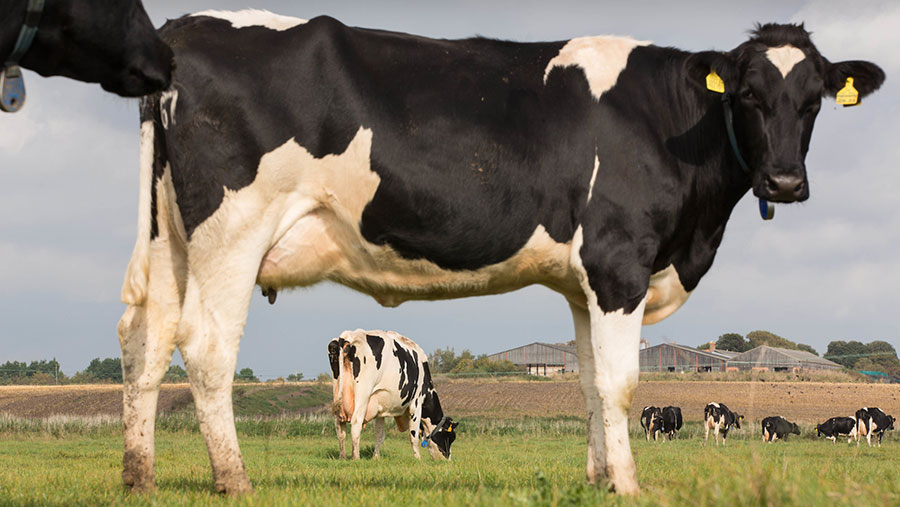Farmers warned to prepare for 2020 downturn
 © Tim Scrivener
© Tim Scrivener Farmers are being warned 2020 may bring the next dairy slump, which could be felt harder because of Brexit and cutbacks made during the recent crisis.
The dairy industry needs to build resilience in the two years after Article 50 is triggered to prepare for an uncertain landscape while dairy prices are still rising.
See also: Traders, farmers and exporters react to PM’s Brexit speech
NFU Scotland milk committee chairman, Graham Kilpatrick warned the next downturn would likely hit in 2020, judging by the cyclical nature of the market and recent crises in 2012 and 2016, and could be the “killer” one for many producers.
Despite the cutbacks made during the recent crisis, farmers would have to go further to place themselves in the best position to cope with a post-Brexit world.
He cautioned farmers who couldn’t get their cost of production down may not have a business after 2020.
“One of the biggest worries are fluctuations in the exchange rate.
“If it goes too far one way or-the-other our inputs and outputs get out of sync can effectively change farm incomes by 10-20%.”
Kite Consulting’s John Allen agrees that a downturn is likely in three years’ time and said leaving the EU would herald a tough period for producers.
“The crucial thing for farmers is to get your unit cost down or you’re going to get substantially hit in the next downturn.
“Use this improvement in prices to repay debt – it’s crucial we don’t go into this next cycle with more added debt.”
But if producers can heed the similar lessons that New Zealand dairy went through in 1983-4 when it restructured, the industry could emerge stronger on the other side.
“That doesn’t mean leaving the EU is going to be all good fun – because I don’t think it will be.
“I think it’s going to be five to 10 years of very tough times.
“But I suspect at the end we will come out of it with a very competitive industry.”
Brexit worries
The ability for UK farmers to compete on a level playing field with their European counterparts would also be critical, following Theresa May’s confirmation that Brexit will indeed mean leaving the single market, said Dairy Crest Direct director, Richard Stanbury.
“If our government doesn’t provide that level of support within the package we negotiate then you worry where British agriculture is going to head to.”
But Mr Stanbury was positive that Dairy Crest’s cheese market would remain robust despite the UK’s departure from the EU.
“Regardless of a hard or soft Brexit, the government must deliver a phased approach that gives farmers time to prepare for life after subsidies.
“Agriculture will find it extremely difficult in all sectors if this isn’t the case.”
Reasons to be positive
But optimism that there was finally clarity and a plan in place was reassuring for Barber’s Cheese owner, Anthony Barber.
“After seven months of no one being clear, we’ve got something to work towards now.
“We’ve now got to sharpen up and get on with it.”
